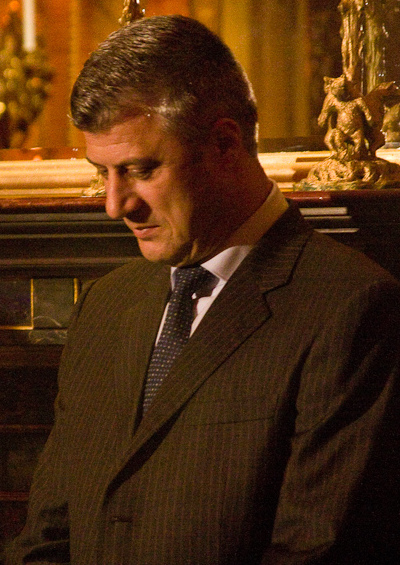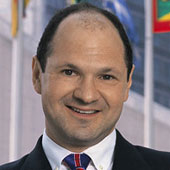Vodka: Sobering Up the USSR
How did restrictions on vodka consumption speed up the collapse of communism?
August 2, 2014

This is part two of a three-part Globalist series on vodka’s impact on Russia.
To help understand the inner dealings and direction of the Soviet Union, there were always two contending schools of thought. On the one hand were Western Kremlinologists.
▪ Pt. 1: Russia Through the Vodka Glass
▪ Pt. 2: Sobering Up the USSR
▪ Pt. 3: Market Riches After Communism
These scholars — like President George W. Bush's National Security Advisor Condoleezza Rice — made a career out of studying political intrigues in the Kremlin.
On the other hand were true sages like Mikhail Gorbachev, the man under whose remarkable reign the Soviet Union dissolved itself.
Whether consciously or not, Mr. Gorbachev understood that vodka was the key to understanding the Soviet system.
When he took over the Soviet government in 1985, Mr. Gorbachev unleashed a massive campaign to promote soft drinks and fruit juices — instead of vodka. His government also hiked the price of vodka and severely limited its sale.
From troikas to troubles
In typical Soviet style, he also proposed truly heavy-handed, excessive regulations to combat the shift from vodka to other forms of alcohol.
For instance, in the South of Russia, 100-year-old vineyards were systematically eradicated. The result was predictable enough. There were huge lines in vodka stores, of course. And in those lines, arguments and fights broke out incessantly.
Prior to Mr. Gorbachev's anti-vodka campaign, the drink was often consumed by a "troika." Consuming vodka in groups of three made sense because a bottle cost three rubles. In this way, each person contributed one ruble — and in turn, each had one glass.
But now, instead of just boozing up with each other, people actually shared their misery about life in larger groups. These people realized that in their miserable, detoxed circumstances, waiting in line had never been harder. And it had never been more politically explosive.
After all, Mr. Gorbachev's laudable act of rationing vodka took the dampening effect of drinking out of everyday Soviet life. That exposed the true misery of life under communism — without any alcoholic shock absorber.
Worse, Russians began drinking all manner of chemicals — such as industrial lubricants and even shoe polish. Given higher prices for the real stuff, anything that contained even a gram of alcohol — or could give you a buzz — was imbibed.
There was also plenty of bitter humor. For instance, the best present you could bring to your Russian friends from abroad was a bottle of "Gorbatschoff" vodka from Germany — a respectable old brand that predated the rise of Mr. Gorbachev to power.
Where does that leave us looking back to the time the Soviet Union dissolved? Even today, Mr. Gorbachev remains extremely unpopular in Russia.
Unpopular sobriety
Most people living outside Russia think it is because he is blamed for the fall of the Soviet Union — and Russia's loss of its empire and superpower status.
Much closer to the truth is probably the fact that it was Mr. Gorbachev's own sober way of life — and his attempt to impose it on his countrymen and women — that makes the Russians dislike him in retrospect.
When the Soviet Union finally disintegrated at the end of 1991, Boris Yeltsin — the new Russian leader — decided not to repeat Mr. Gorbachev's error of restricting access to vodka.
That was to be expected not just on grounds of political smarts. After all, Mr. Yeltsin himself was far from a teetotaler.
From abroad, Mr. Yeltsin might have appeared rather ridiculous. But to Russians, his drunkenness was a hopeful sign that their own love of vodka would never be denied.
Takeaways
Read previous

War Crimes: How to Get Justice?
August 2, 2014
